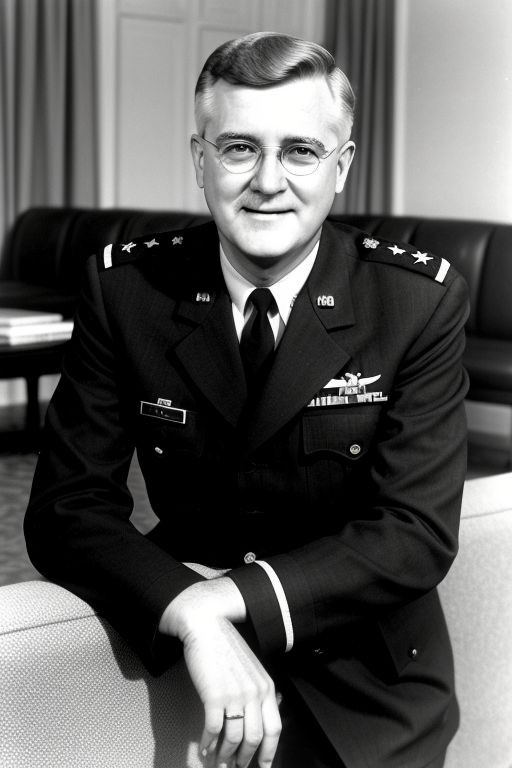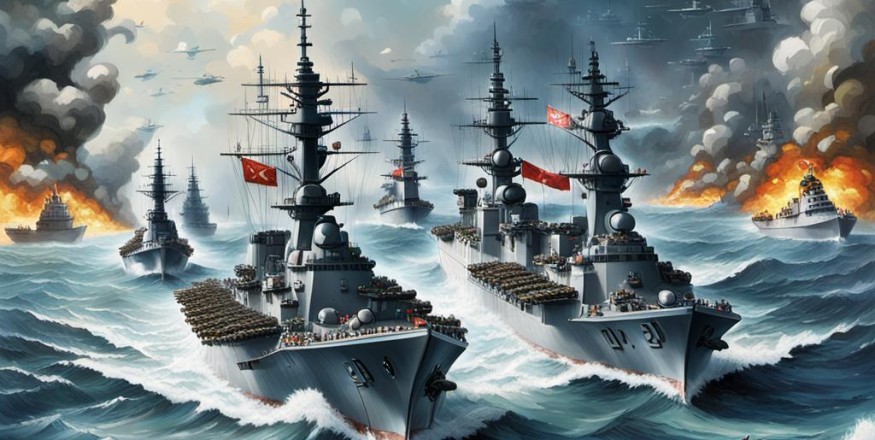 x
x
The people in his wing of the Pentagon, both civilian and military, welcomed the sudden change that had come over Harry Binghamton. There were so many admirals and generals running around the corridors that most individuals ceased to be impressed with them after the first few weeks at work. But Binghamton was cut from a slightly different mold. Not only was there a certain aura about him, but he possessed a reputation that had transformed him into an almost fictional character. Those who didn't know him were in awe of the tales of his exploits. The awe heightened to reverence after the Battle of the South China Sea. This was, in turn, magnified by the personality of the hardened admiral allowed to move about the corridors in a wheelchair.
The fact that he was once more smiling, actually exchanging the time of day with those he rarely nodded to weeks before, was cracking that facade. The rumors about the change in Binghamton were eventually confirmed by a yeoman whose duty it was to stop by his outer office four times a day to pick up the outgoing mail. On that particular day, the first and only one she could remember that the door to the inner office had been left open, there was Admiral Binghamton at his desk---in a chair, not the wheelchair everyone had grown accustomed to. And, to the yeoman's surprise, Binghamton had looked up from his desk, seen the girl collecting the mail, and waved to her with a smile.
By lunchtime, it had been confirmed throughout the vast building---the legendary Admiral Binghamton could get out of that wheelchair! No one, not even his secretary, had ever seen him walk. Susie had come in one morning and there he was, sitting at his desk in the regular chair, the wheelchair folded in the far corner. Since he had simply looked up at her, muttered a greeting, and returned to his work, she never questioned the change. There was no one there to help him. He had obviously wheeled himself to the office----a number of people had seen him going up the corridor---entered the room, closed the door, and somehow had not only walked to his desk on his own, but had first folded the wheelchair and left it on the other side of the room.
And that same day, with the wave and the smile to the yeoman, Admiral Harry Binghamton was back from that distant world he had encased himself in for so long. Binghamton would never find out how his return changed those around him, for he was totally engrossed in his new operation. The fact that he knew Harry Locke was on his way to join Waverly, if he wasn't already there, excited him even more.
Binghamton's strategy wasn't as clear yet, though he sensed what needed to be done. The first battle would be to convince his superiors, and the President, when the time came and decisions would involve not just experimenting with ships and planes and men on a laptop screen, but the lives and deaths of his men.
There were moves the Chinese made recently that had attracted no curiosity on the part of American intelligence, even very little from his perspective, until ideas began to fall into place. Chinese diesel submarines had generally been intended for coastal protection of the motherland, and little attention was paid to the fact that more than a dozen of them had transited the Atlantic the past month. Some received supplies in Cuba while others were reprovisioned at sea. A few had made port visits to South America. None of this sparked interest5 in the American intelligence community. Their purpose made no sense until Harry Binghamton acknowledged the obvious---no sane naval commander would waste nuclear submarines in a blockade of narrow passages like the Windward or Mona or Galleons. Those Chinese diesel attack boats were tossaways----all that was needed was a sub that could fire torpedoes and interdict the entrances to the Caribbean!
Maybe they would use nuclear submarines, in conjunction with their surface forces, to impede the Florida Straits or the Yucatan Channel. That made sense. But the primary responsibility of those main forces would be to keep American ships from entering the fray, to deny access to the Caribbean. They would jockey with each other in the Atlantic---threat and counterthreat. That's where the power structure above him would come in, Binghamton knew. That's when the hotline between Washington and Beijing would be active. And that was why he was sitting in his chair now, constructing what might be of realistic projection. He understood almost everything, and in time he would have enough to be able to explain it to even the most liberal senator, to detail the military freight on those roll on/roll off ships plodding through the Atlantic, timing their arrival exactly.
Binghamton had been analyzing the intelligence returned by the hydrofoil to Key West days before, and realized again how Harry Locke never missed a beat. This fellow Zheng has a talent for strategy just like me, Binghamton thought as he examined the material. Except, Binghamton decided, I'd use my heavies a little differently. Considering how effective those diesel submarines should be, I'd move more guided missile ships off the Bahamas. But then again, there may still be something I've missed.
He saw that same pretty yeoman picking up the mail in the outer office, the one who'd been staring at him the day before. He smiled and waved.38Please respect copyright.PENANAXNEa6Vn3F4






















